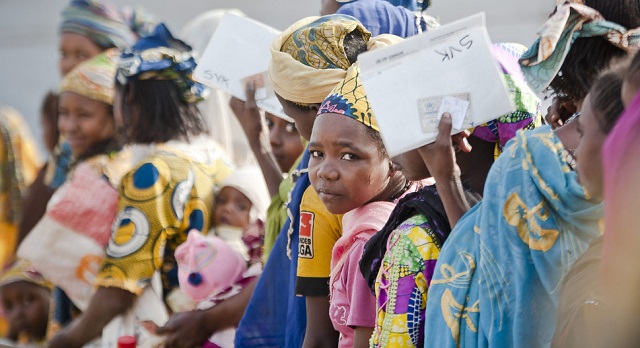
The global compact has four objectives:
1. Ease pressures on countries that host large numbers of refugees;
2. Build self-reliance of refugees;
3. Expand access to third-country or refugees through resettlement and other pathways of admission;
4. Support conditions that enable refugees to return to their countries of origin
Will my country be obliged to welcome refugees?
Not more than it already is. The 1951 Refugee Convention focuses on rights of refugees and obligations of states. The global compact on refugees reaffirms those standards and principles.
The compact is not intended to create additional burdens or impositions on countries hosting large numbers of refugees, nor to modify UNHCR’s protection and solutions mandate. It seeks to build upon the international refugee regime that has been established over decades.
My country already hosts many refugees? Are we going to get help?
In specific large-scale refugee contexts, the global compact provides that a host State or country of origin, could request the activation by UNHCR of a Support Platform to assist its national response arrangements.
“What we want to achieve is a very quick galvanizing of support: political, financial, and resettlement support, so that countries – when they are faced with such a situation – feel that they are not on their own, that they are not isolated, or that no one cares”, Türk said. “That the international community cares about the people, but also the country that is affected. And it stands in solidarity, and acts in solidarity with them. That is really the purpose”.
What tangible difference will the compact make in the lives of refugees or the communities that host them?
UNHCR Assistant High Commissioner for Protection explained that if the compact is implemented we would see “better education for refugee boys and girls, as well as better access to health services for all refugees, and more livelihood opportunities”. Host communities would engage differently with refugees, moving away from the encampment policies.
Host countries like Uganda, Rwanda, Iran, those in Central America, or Lebanon — with its infrastructure and health services enormously challenged by hosting a million refugees – would get the support they need not just from a humanitarian perspective but from a development cooperation perspective. “And that’s what is new”, Türk added.
Also, UNHCR aims to get more resettlement places and find more ways refugees can move to third countries – such as through family reunification, student scholarships, or humanitarian visas.
 The Independent Uganda: You get the Truth we Pay the Price
The Independent Uganda: You get the Truth we Pay the Price





